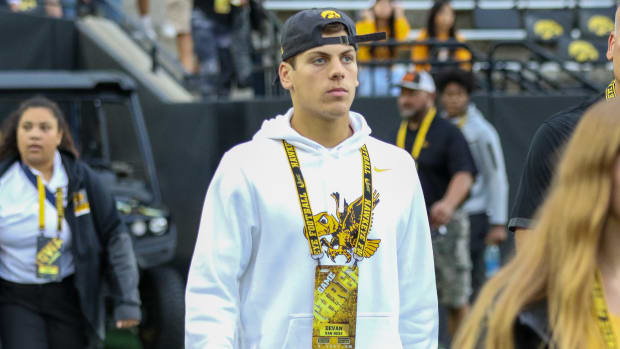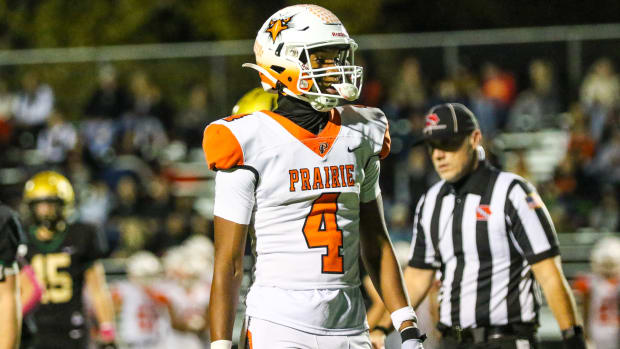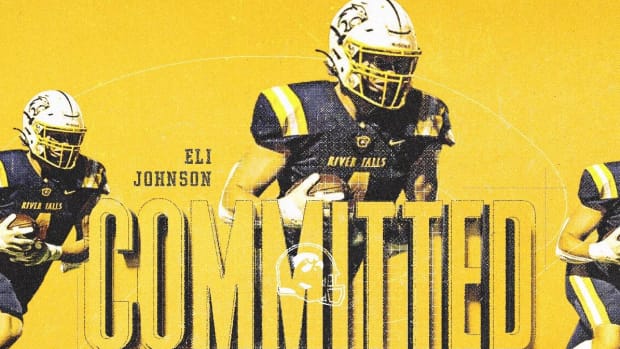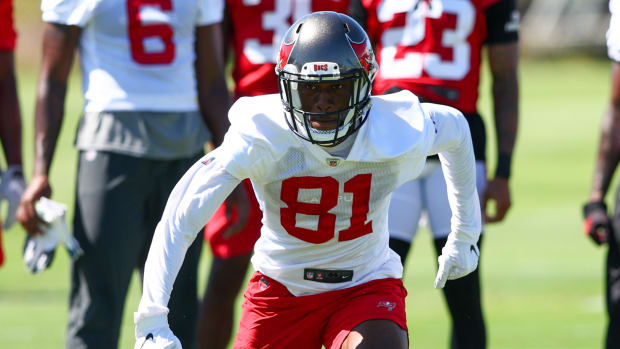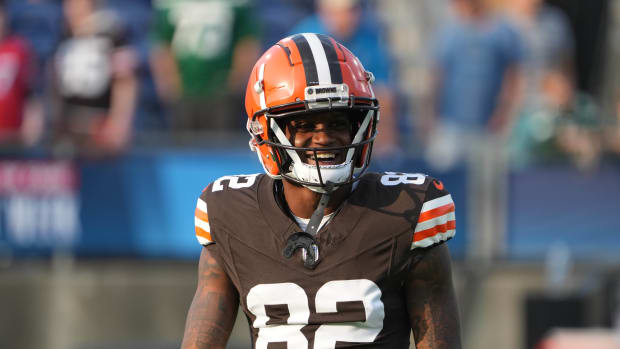'This Is One For The Books': Ferentz Tries To Deal With New Routine
The last message Kirk Ferentz gave to his players the last time they met was to not devote much time to thinking about the future.
It was on March 13, the day it became clear that Iowa’s spring football practice wasn’t going to start on time as concerns about the COVID-19 coronavirus shut down sports, and just about everything else.
Of course, Ferentz said, two days later he ignored his own advice.
“What if we only have three weeks of spring ball? What if the guys don’t get back until mid-April?” the Hawkeyes’ coach said during a Wednesday teleconference. “My encouragement was don’t burn too many brain cells on what future plans are going to be, because whatever we know today we’ll probably be ripping up and starting over again tomorrow. Like a fool, on the 15th I was making some mental plans on what we might do if we couldn’t start spring practice until mid-April. Needless to say, that went out the window a couple of weeks ago.”
There will be no spring football practice for the Hawkeyes — almost all of the players are off campus and at their homes. There is no free access to the football building — the players can be in the weight room by appointment, and they can pick up nutritional supplements.
But there are no workouts. The meetings are done by video conferencing — “I hadn’t heard of Zoom until three weeks ago,” Ferentz quipped.
And when the Hawkeyes will be back together is uncertain.
Ferentz has thought of all scenarios, even the one where there could be no college football season.
“I think anything’s possible right now,” he said. “I think all of us have to realize that. We all want to get back to work tomorrow. We miss this, it’s what we do, just like all of you feel this way. It’s what you do. We all miss our routine.
“The bigger picture is, what does it mean if we’re not back? That’s not good. And what’s it mean if we’re not able to return to some semblance of normality, just in our daily lives, three months from now? It means we’ve got bigger problems than missing football. Missing, you know, this or that.”
Ferentz, like the rest of Iowa’s coaching staff, is working from home.
“I’m certainly more comfortable working out of my office, but it’s not really realistic at this point,” he said. “There’s a rhythm to what we do. And we’re all out of rhythm now.
“When you consider what’s going on in the real world, consider what’s going on in certain regions of our country right now, it makes that pretty insignificant and pretty miniscule, quite frankly.”
Ferentz said his time at home has been productive.
“I’m probably like the players, I’m trying to make sure I’m trying to follow a routine, also,” he said. “That’s probably been one of the hardest things — to be in a routine, try to be productive. I think, as a nation, we probably set a record for cleaning out closets, doing some things we all put off.”
Ferentz estimated “16 to 18” of the Hawkeyes remain on campus or at their homes in towns close by. Quarterback Spencer Petras, who is from San Rafael, Calif., and wide receiver Ihmir Smith-Marsette, who is from Newark, N.J., are among the players who have stayed on campus.
Ferentz, who said he has watched more television in the last three weeks than in the last 15 years combined, noted how he saw video from a nearly empty Times Square in New York City. He remembered how uncomfortable he was walking down the packed sidewalks when the Hawkeyes were there for the Pinstripe Bowl in 2017.
“Now you see the footage, it looks like a science fiction movie, quite frankly,” Ferentz said. “Who could have envisioned this? Who could have envisioned all of our lives put on hold in such a way? But it’s a reality. Things happen. The blame game stuff, you see that get thrown around a little bit — I guess we can’t resist playing that game sometimes. It’s like anything — what can we do to respond?”
Iowa was coming off a 10-3 season, but lost several key players, including quarterback Nate Stanley, offensive tackle Tristan Wirfs, and defensive end A.J. Epenesa. The schedule of 15 practices, which would have started March 24, would have helped give some clarity to Iowa’s depth chart, but the Hawkeyes did not get to have any time on the field.
Players have been given workout plans for home, but Ferentz estimated his strength and conditioning staff would need “four work weeks” to get players in shape for fall practice.
“One thing is for certain — we missed 15 days of practice, and considerable meeting time that goes along with that,” he said. “Whenever the players get back here, there’s going to have to be incremental time for them to kind of get their conditioning level back, to where you can at least think about doing something that is strenuous and rigorous, and do it safely.”
Ferentz said he saw one positive when talking about his players’ eating habits away from campus.
“One observation that came up was the vegetables — they’re not seeing near as many vegetables as they would see on campus,” he said. “I guess if we’ve made any successful strides, at least we’ve educated our guys into having a little bit better balanced diet than what they were used to at home.”
For now, everyone is at home, and waiting to return.
“This is affecting lives,” Ferentz said. “This is impacting everybody. And it’s going to impact all of us moving down the road for a prolonged period of time.
“This is one for the books, no question about that.”

